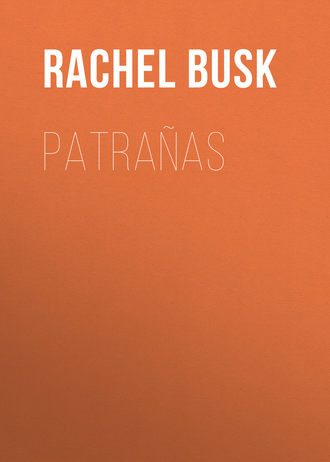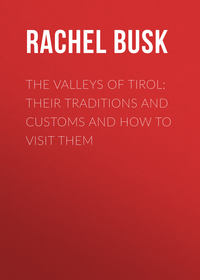 полная версия
полная версияPatrañas
72
Tamaño como del codo á la mano.
73
“… Su dotrina así alumbroQue hace ver á los ciegos.”74
Dumas has indulged his wit at the expense of the unfortunate river, and tells us that his son, being overcome by heat one day at the opera, the bystanders brought him a glass of water; but he refused it with admirable self-sacrifice, exclaiming, “Take it to the poor Manzanáres, its necessities are greater than mine.”
75
A long, thin, pointed stick.
76
Melena is used to signify shaggy hair, when peasants or others leave it uncut and uncombed.
77
Though neither of the persons in this piece are Spanish, nor the scene laid in the Peninsula, it is thoroughly Spanish in character, and the subject of one or two popular ballads, and several dramas, by the best authors.
78
Dark green (lit. black-green).
79
A small coasting-boat, carrying only a boom sail.
80
A word borrowed from the Turkish, to signify a dungeon, and used when speaking of a Turkish prison.
81
Moorish palace.
82
A Spanish game, forming a sort of mock tournament, the combatants being armed with canes instead of lances.
83
A Spanish game, consisting in pelting each other with alcancías, or round earthen pots, in which flowers and other things were enclosed before they were baked (in the sun), and which fell out when broken against the shield of those at whom they were thrown. I do not know if these games were also in use in Venice, or if their introduction here is a vulgar error.
84
A common practice of Spaniards, even in street fights, to the present day.
85
A formidable leader of the Moors in Spain of the tenth and eleventh centuries.
86
Como el sándalo que perfuma el hacha que le hiere.
87
La confianza en Dios y los pies en la calle.
88
“Un convidado convida a ciento.”
89
Cork-trees.
90
“La fortuna es por quien la encuentra y no por quien la busca.”
91
A kind of notary or attorney, who is spoken of in the popular language of Spain with as much abhorrence as the “publican” in the Gospel.
92
Agachó las orejas– a metaphor which readily suggests itself in a country where donkeys and mules are so much in use.
93
The soil of the bed of the Tagus is a yellow sand, which gives its water rather a muddy appearance. Poets, however, see things with a different eye from ordinary mortals, and have turned it to gold in their verses: “el dorado Tajo,” the golden Tagus, is their common appellation for it.
94
Majorca.
95
La Sierra Nevada traverses the centre of Granada.
96
The noise and tumult of the Moors’ war-cry.
97
Foreign.
98
Dear little ring.
99
Good little shepherd.
100
Sir Country-bumpkin.
101
Little princess.
102
Child.
103
Proud little thing.
104
Small leathern bottle, hung from the saddle in travelling.
105
Santon is a term used in Spanish for a person professing a life of austerity among the Moors.
106
The letter F in Spanish is pronounced fé, and fé is the Spanish for faith.
107
Baptism and Extreme Unction, taken to typify the Christian law.
108
Now Hayti.
109
Large jars.
110
Puren distinguished himself so much by his courage in these wars, that Alvárez de Toledo, a captain in the Spanish army in Araucania, composed a poem on him, entitled, “Puren indomito.”
111
It is possible Don Ercilla here celebrates some feat of his own.
112
Palio, a banner of bright-coloured silk or cloth, hung across the end of the race-course among Spaniards, and given to the winner. Don Ercilla, all through the story, seems to fill up his incidents from Spanish manners and ideas.
113
The Adriatic.
114
A dollar.



